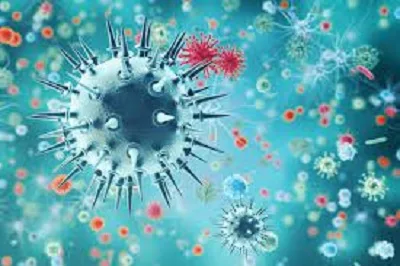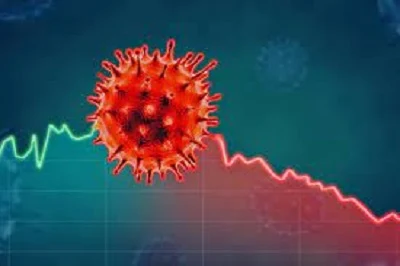Controlling pandemic diseases requires a combination of individual actions, community efforts, and coordinated responses from healthcare systems and governments. Here are some key strategies that can help in controlling a pandemic:
Stay informed: Stay updated with reliable sources of information such as the World Health Organization (WHO) and the Centers for Disease Control and Prevention (CDC) to understand the latest developments, guidelines, and recommendations related to the pandemic.
Personal hygiene: Follow basic hygiene practices such as frequent handwashing with soap and water for at least 20 seconds, using hand sanitizers when soap is not available, covering your mouth and nose with a tissue or your elbow when sneezing or coughing, and avoiding touching your face.
Wear masks: Wear masks or face coverings in public places, particularly when social distancing is not possible. Masks help reduce the transmission of respiratory droplets that may contain the virus.
Practice social distancing: Maintain a physical distance of at least 1 meter (3 feet) from others, especially in crowded places or if someone is coughing or sneezing. Avoid large gatherings and non-essential travel.
Vaccination: Get vaccinated as soon as vaccines become available. Vaccination plays a crucial role in preventing the spread of infectious diseases and reducing the severity of illness. Testing and contact tracing:
Expand testing capabilities to identify and isolate infected individuals promptly. Implement robust contact tracing efforts to identify and notify individuals who may have been exposed to the virus, so they can take necessary precautions and seek testing.
Quarantine and isolation: Encourage individuals who have tested positive for the disease or have been in close contact with an infected person to self-isolate or quarantine for the recommended period. This helps prevent further spread of the virus.
Travel restrictions and border control: Implement travel restrictions, including screening and quarantine measures, based on the severity and spread of the disease. Restricting non-essential international travel can help contain the virus and prevent its introduction into new regions.
Public health measures: Promote public health measures such as regular cleaning and disinfection of frequently touched surfaces, improved ventilation in public spaces, and promoting healthy habits like exercise, a balanced diet, and adequate sleep to boost immune system function.
Clear communication and education: Ensure clear and accurate communication of information related to the pandemic, including preventive measures, symptoms, testing, and available healthcare services. Education and awareness campaigns can help dispel misinformation and encourage compliance with recommended guidelines.
Collaboration and coordination: Foster collaboration and coordination among local, national, and international health authorities, healthcare systems, and communities to share information, resources, and best practices. This allows for a unified and effective response to the pandemic.
It is important to note that the strategies for controlling a pandemic may vary based on the specific disease and its characteristics. Following the guidance of public health officials and healthcare experts is essential in navigating and controlling pandemics effectively.
How to Prevent Pandemics
Preventing pandemics involves a multi-faceted approach that focuses on proactive measures to reduce the risk of emerging infectious diseases. While it's not possible to eliminate all potential threats, the following strategies can help in preventing pandemics:
Strengthen disease surveillance: Establish robust systems for disease surveillance and early detection. This includes monitoring and reporting unusual illness patterns, conducting regular wildlife and domestic animal surveillance, and enhancing laboratory capabilities for rapid identification of new pathogens.
Invest in research and development: Support scientific research to better understand the origins, transmission, and virulence of infectious diseases. This knowledge can inform the development of diagnostic tools, treatments, and vaccines to effectively respond to emerging threats.
Improve animal and environmental health: Promote animal welfare and implement measures to prevent the transmission of diseases from animals to humans.
This includes monitoring and regulating wildlife trade, improving biosecurity measures on farms and in livestock markets, and addressing environmental factors that contribute to disease emergence.
Enhance international collaboration: Foster collaboration among countries, international organizations, and researchers to share information, resources, and expertise.
This includes establishing early warning systems, sharing data on disease outbreaks, and coordinating responses to contain and prevent the spread of infectious diseases.
Strengthen healthcare systems: Invest in robust healthcare systems that are equipped to respond effectively to outbreaks. This includes adequate funding, trained healthcare personnel, sufficient medical supplies and equipment, and well-functioning public health infrastructure.
Promote public health education: Educate the public about the importance of preventive measures such as hand hygiene, respiratory etiquette, and vaccination. Encourage healthy behaviors, including regular exercise, proper nutrition, and adequate sleep, to enhance overall immune system function.
Implement risk assessment and management: Develop risk assessment frameworks to evaluate and prioritize potential threats based on factors such as transmissibility, severity, and potential for global spread. This helps allocate resources and guide preparedness efforts.
Strengthen emergency preparedness: Develop and regularly update preparedness plans that outline response strategies for different types of infectious diseases. Conduct drills and simulations to test and improve response capabilities, and ensure adequate stockpiles of essential medical supplies and equipment.
Address social and economic factors: Address socioeconomic disparities and improve access to healthcare services for all communities. Socioeconomic factors can influence the vulnerability of populations to infectious diseases and their ability to access timely healthcare.
Advocate for policy changes: Encourage policymakers to prioritize pandemic prevention and invest in research, public health infrastructure, and preparedness.
Advocate for policies that promote sustainable development, environmental conservation, and animal welfare, which can indirectly contribute to preventing pandemics.
Preventing pandemics requires a long-term, global commitment to proactive measures and collaboration across sectors. By investing in preparedness, research, and international cooperation, it is possible to reduce the risk of pandemics and protect global health.
Importance of Pandemics
Pandemics are global health crises that can have significant and far-reaching impacts on individuals, communities, and societies. Understanding the importance of pandemics is crucial for several reasons:
Public Health Impact: Pandemics can cause widespread illness, severe disease, and even death. They can overwhelm healthcare systems, leading to a strain on resources and a decreased ability to provide adequate care for all patients.
The impact on public health can be substantial, resulting in increased mortality rates and long-term health consequences for individuals affected by the disease.
Socioeconomic Disruption: Pandemics can disrupt economies, disrupt supply chains, and lead to job losses. Businesses may suffer due to reduced consumer demand, travel restrictions, and social distancing measures.
The economic impact can be significant, affecting industries such as tourism, hospitality, retail, and transportation. Disruptions in education, trade, and daily activities can also have long-lasting social and economic consequences.
Global Security: Pandemics have the potential to destabilize regions and countries, affecting national security and geopolitical dynamics.
They can strain political systems and institutions, disrupt governance, and create social unrest. Additionally, pandemics can exacerbate existing social and economic inequalities, leading to social and political tensions.
Healthcare Infrastructure: Pandemics put immense pressure on healthcare systems, exposing vulnerabilities and highlighting the need for robust infrastructure and resources.
The capacity to respond effectively to a pandemic relies on well-functioning healthcare systems, adequate medical supplies, trained healthcare professionals,
and efficient coordination among various stakeholders. Pandemics serve as a reminder of the importance of investing in healthcare infrastructure and strengthening healthcare systems to better prepare for future health crises.
Global Collaboration and Preparedness: Pandemics underscore the importance of international collaboration and preparedness. Viruses and diseases do not recognize borders, and effective responses require a coordinated effort among countries, international organizations,
and healthcare professionals. Sharing data, expertise, and resources is crucial for early detection, surveillance, and containment of infectious diseases. Strengthening global health governance and cooperation is essential to prevent, detect, and respond to future pandemics effectively.
Lessons for the Future: Each pandemic presents an opportunity to learn valuable lessons and improve preparedness for future health crises. Understanding the causes, transmission patterns, and impact of pandemics can inform public health strategies, research priorities, and policy development.
By investing in research, surveillance systems, healthcare infrastructure, and public health education, we can mitigate the impact of future pandemics and improve overall global health security.
In summary, pandemics have wide-ranging implications for public health, socioeconomic stability, global security, and healthcare infrastructure.
Recognizing the importance of pandemics emphasizes the need for proactive measures, international collaboration, and ongoing preparedness efforts to prevent, detect, and respond effectively to future health crises.







.png)
.png)
0 Comments